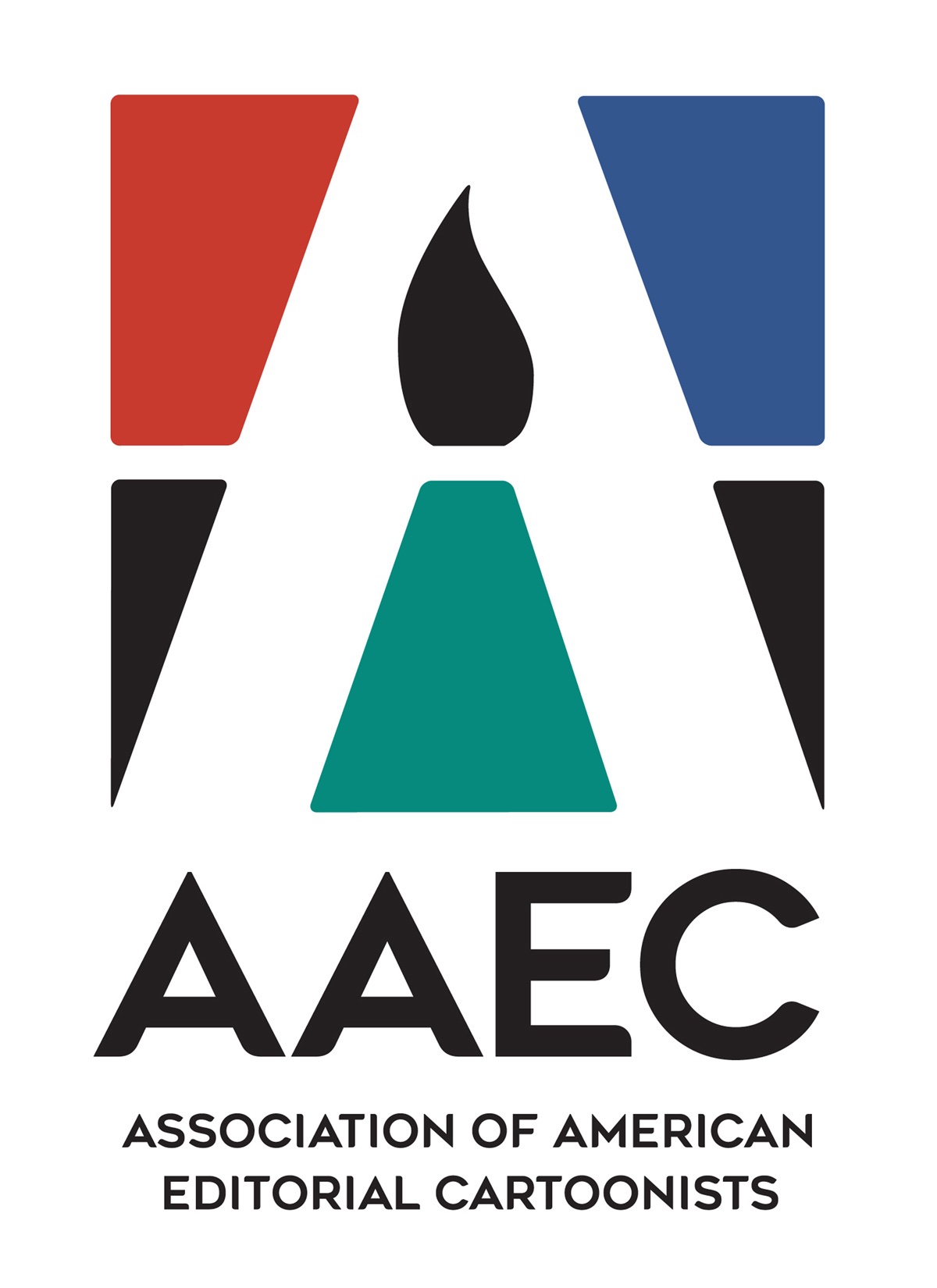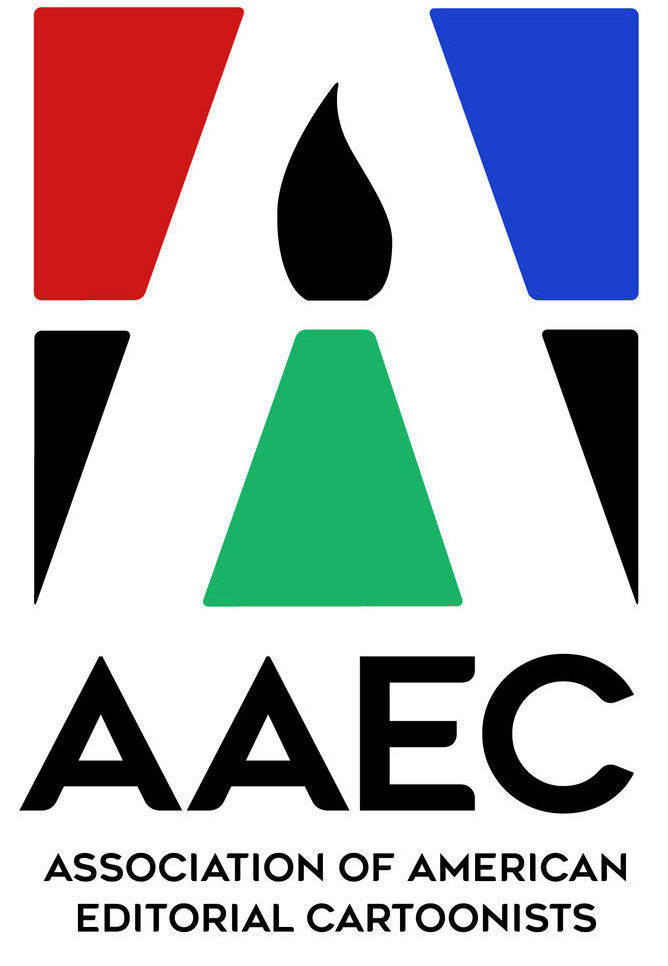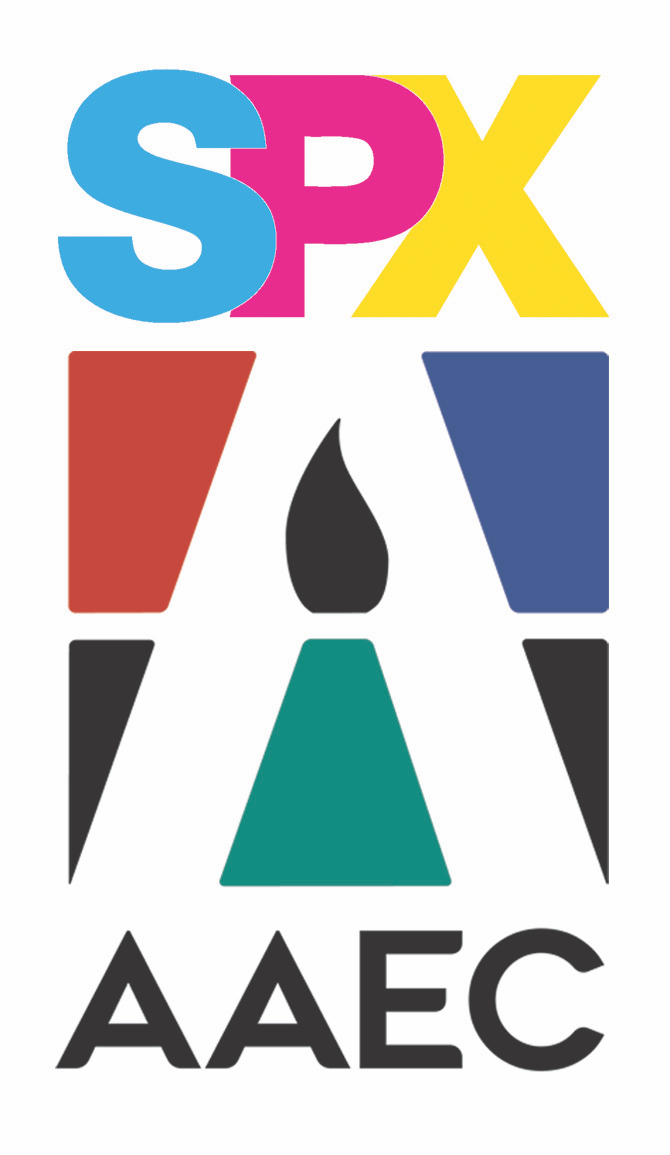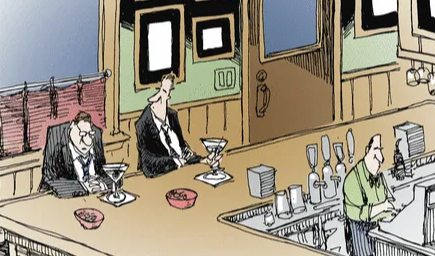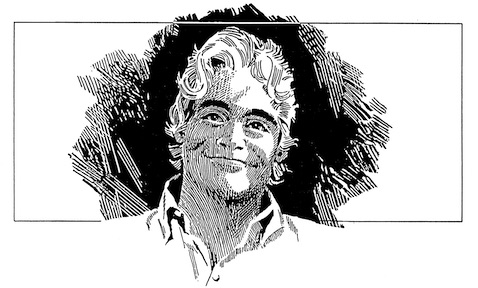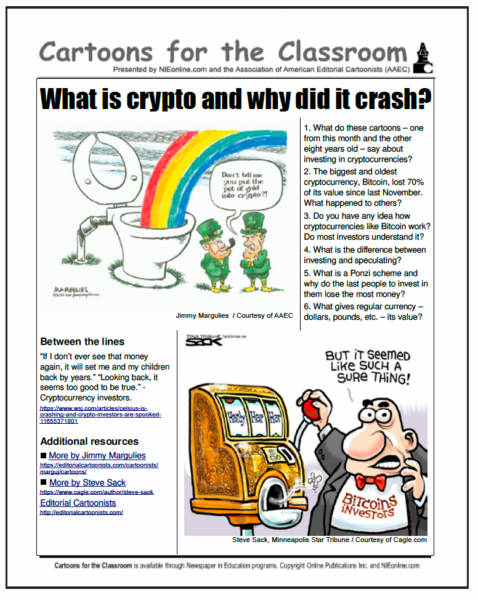The Association of American Editorial Cartoonists has filed a Friend of the Court letter with the California Supreme Court on behalf of editorial cartoonist Ted Rall and his effort to have an anti-SLAPP judgment against him overturned.
Rall is seeking to have the ruling set aside so that he may continue his lawsuit against the LA Times for wrongful termination and defamation, after he was fired as a contributor by the newspaper in 2015. The media conglomerate has been using a statute, originally designed to protect private citizens from large corporations, to avoid a jury trial and shift their legal costs to the freelance cartoonist.
In their letter to the California Supreme Court, the AAEC notes: “It’s regrettable, and perhaps not the intention of the court, but the harsh treatment of Rall sends a message to political cartoonists of all stripes. The overly punitive application of the SLAPP laws in this case will financially ruin a cartoonist and this will have a lamentable chilling effect. As a fierce defender of First Amendment rights the AAEC sincerely hopes the court will consider what sort of message it’s sending.”
For years before his dismissal, Rall was a regular contributor to the Los Angeles newspaper and its website, where he frequently commented on, and criticized, the LA Police Department. After a 2015 blog post about his treatment at the hands of the LAPD for jaywalking in 2001, Rall contends the police, in an effort to silence a critic, dug out evidence about the incident and gave it to Rall’s editor.
The LA Times subsequently fired Rall and published two separate columns on their action, attacking the cartoonist’s veracity. In his attempt to sue the paper for defamation, Rall noted that the LAPD had invested a percentage of their pension fund in the stock of the corporate entity that owned the LA Times at the time, and questioned whether his termination was impartial, or if other factors were in play.
Rall and his attorneys have been working to get his case in front of a jury since that time. Using state anti-SLAPP (“Strategic Lawsuit Against Public Participation”) statutes, the newspaper and its then-corporate owner TRONC blocked the lawsuit from going to trial, and are fighting Rall’s appeal. If the cartoonist loses the appeal, it could set an unfortunate precedent for freelancers working for large media outlets.
The letter sent to the California Supreme Court in support of Rall is attached below.
+ + + +
March 1, 2019
Dear Chief Justice Cantil-Sakauye and Associate Justices:
The Association of American Editorial Cartoonists (AAEC) is a professional association dedicated to the promotion and preservation of the political cartoon. The mission of the AAEC is to champion and defend editorial cartooning and free speech as essential to liberty in the United States and throughout the world. It is the world’s largest organization of political cartoonists.
Formed in 1957 by a small group of newspaper cartoonists, the association was created to promote and stimulate public interest in the editorial page cartoon and to create closer contact among political cartoonists. Over the last 60 plus years the AAEC has grown to 250 members, both national and international and has evolved and adapted to many changes in the news media.
The audience for our cartoons, and the velocity of their delivery has never been greater. So has the response. Social media amplifies both the reach and reaction to cartoons as never before. Many question what rights the cartoonist or satirist or columnist have to state their opinions—much less be employed. Defending cartoonists in these situations has become a regular aspect of the association’s work.
In light of our mission, the AAEC would like to express its dismay over the handling of Ted Rall’s case by the California court system. We urge the court to consider the downstream effects of a harsh ruling in this case.
Rall is a political cartoonist. Cartoonists live and work on the cutting edge of free speech. We are disproportionately targets of ire, often for bringing up discomforting topics and pointing out unpleasant truths, which is the very nature of satire. This ire sometimes comes from the general public, but most often it comes from the targets of the cartoon commentary, and takes a variety of forms.
Sometimes public campaigns on social media and letters to the editor will call for cartoonists to be fired. Other times these campaigns can be a combination of things, online, PR, and even legal measures. But the point remains the same— to intimidate and silence a critic. In this case it appears the Los Angeles Police Department may well have acted to undermine and silence one of its critics in the largest newspaper in the state.
It’s regrettable, and perhaps not the intention of the court, but the harsh treatment of Rall sends a message to political cartoonists of all stripes. The overly punitive application of the SLAPP laws in this case will financially ruin a cartoonist and this will have a lamentable chilling effect. As a fierce defender of First Amendment rights the AAEC sincerely hopes the court will consider what sort of message it’s sending. Cartoonists face many different kinds of threats and challenges these days. We hope the California Supreme Court won’t be adding to them.
Signed,
The officers and directors of the Association of American Editorial Cartoonists
